Plantocracy and Communism
Stefano Harney & Fred Moten
A selection from Stefano Harney and Fred Moten's All Incomplete, appearing this month with Minor Compositions.
1.
Foucault presents his ‘tips’ on non-fascist living in anticipation of a cultivation of the self he may well have seen as a counter-strategy to the production of the individual.1 But he sends his self-help text into a world of interpersonal relations, one he also documents in his account of the intimate rise of neoliberalism. Another way to say this is that he sends his text into the mouth of democratic despotism. Neoliberalism was nothing other than the completion of the Southern strategy, as Nixon and his aides refined it. The Southern strategy was of course never simply about the Southern United States. It was about the global hegemony of the planters. A global plantocracy made possible by democratic despotism. In this regard, Nixon’s United States political strategy is an extension of the Dulles brothers’ foreign policy, which was in turn a transnational echo of the repression of “Black reconstruction in America.”
Neoliberalism sealed the global deal on democratic despotism. As Du Bois explains, democratic despotism was an innovative form of the global color line. Workers would be designated as white and offered deputy positions in the rule of each country, in exchange for aligning with the ruling classes against people of color inside and outside the borders of that nation. But in reading Du Bois we see a second dimension to this deputization, securing the deal through a promised, though always thwarted, individuation for these workers.
Or, today, for these homeowners. That is, democratic despotism was also about the democratization of despotism. We have referred to this democratization as policy. But such a hacked word should not hide the brutality of the agreement. Each of these persons was offered the opportunity to individuate through despotic violence against blackness (best understood, here, as the refusal of refused access to the unity of whiteness and personhood). Indeed, this despotic violence was the core manufacturing process of the thwarted individual. The production of white people on an industrial scale required this democratization of despotism. Of course, signing up to a world of despotism, proving one’s ‘self’ through ongoing predatory violence against those who claim the differences they enact, required accepting the democratization of despotism as a general principle, and that meant accepting it in the military, in the state, and especially at work – as, in other words, Fordism, and later, logistical capitalism, each of which, in their own way, necessitate and manufacture a brutal little dictator in every workplace. And once despotism is accepted by white people, in and as every little ritual of their own self-acceptance, all of which amount to an endless lag, an eternal deferral, the interpersonal becomes the only way to mollify it. If interpersonal relations form the reservoir of whiteness into which the people tap for dead energy and unsustainable sustenance, then the intersectional becomes the only way for the ones who wait on waiting, whose doubly interminable wait takes the form of critique, to mollify the constantly redoubled despotism they face. Either way, every body waits in vain.
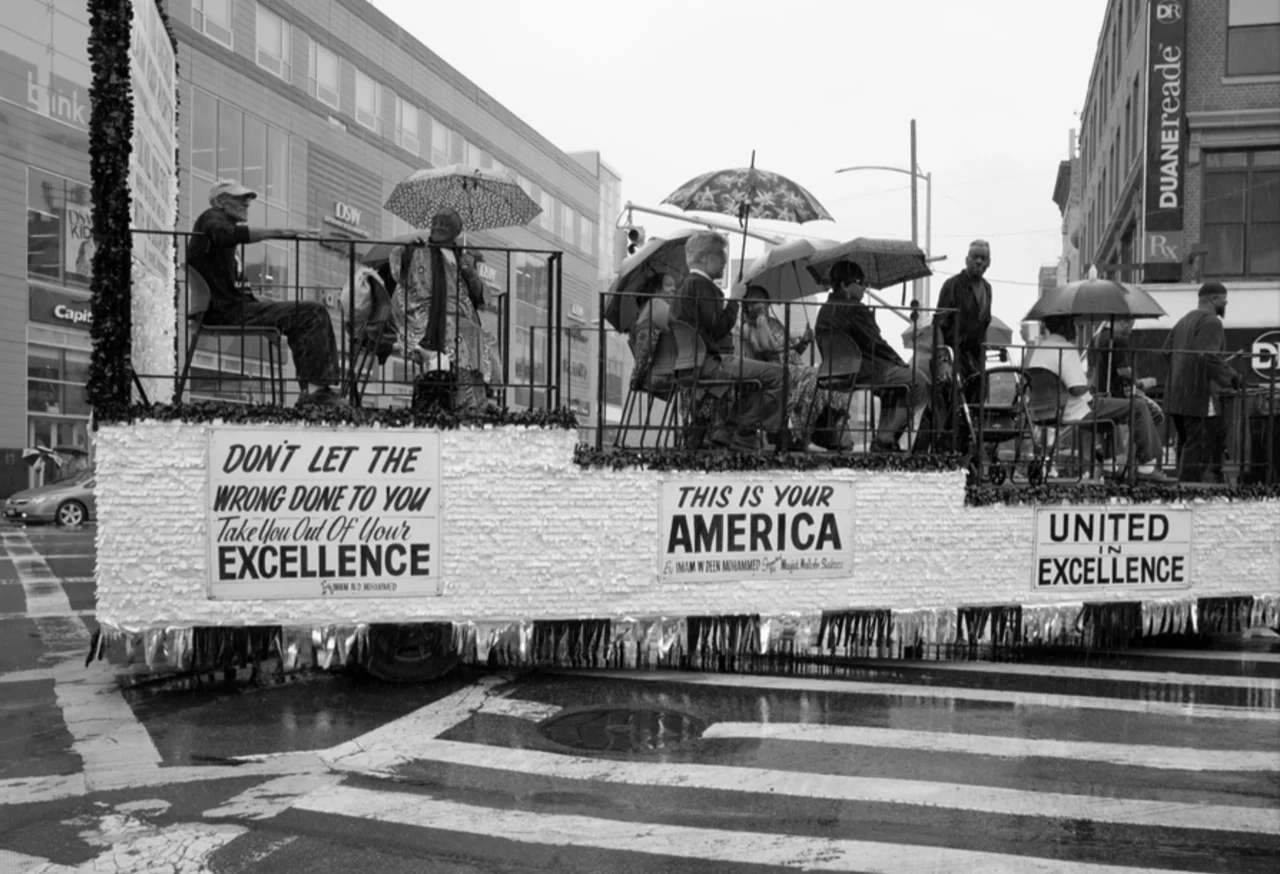
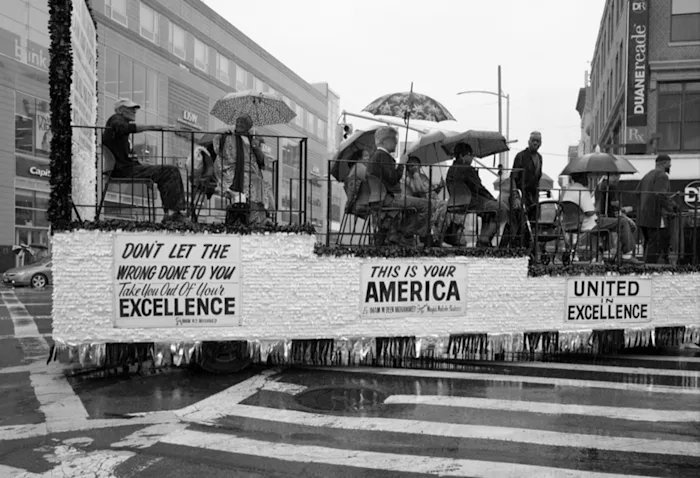
But the interpersonal is not only not up to the task of mollification, it actually reproduces and refines thwarted individuation and democratic despotism. These are the conditions under which the Southern strategy flourished; this is the spread soil of the plantocracy. And now, the pulling down of the Confederate statue proves the strategy has triumphed. The global plantocracy reigns when the monuments walk, and rampage, like pattyrollers in the form of men. But how can we call Foxconn or Goldman Sachs planters? Because they work to fulfill the condition of any and all plantocracies. Planters try to control and concentrate all the land, all the water, all the air, all the food, animals, and plants. Pushing people into factories was just a temporary tactic in this control and concentration, not the endgame. Marxism misunderstands this. The endgame is that no one can survive outside their rule, that everyone and everything must walk into the jaws of the planter or, in other words, that the earth itself is what must be consumed. Finance is completely explicit about using its menacing means to do this. So is logistics. They are sciences of the planter. But understanding this regime as a plantocracy thriving in the individuating violence of democratic despotism does not lead to the thought that there is no outside to the world.
It leads to finding some land to share and with which to share. Because in the face of this despotism we need somewhere to really care, which is the collective destruction of the interpersonal, and with and through it the delusion of the individual, in open practices of welcome and visitation. That cannot be done in conflict with the plantocracy, where the interpersonal, or freedom, or non-fascist living, becomes our faulty weapon. It is a battle that can only be won in the militant, self-defensive, self-annihilative retreat of the new attackers. And given the nature of the rule under plantocracy, retreat means finding land that is fugitive from the rule over land, water, air, etcetera, and then setting that land up anautonomously enough to start the treatment. That land may be a squatted garage in the city or an abandoned mill in the countryside. That treatment may entail forming a band, hosting a barbeque, a dance and a drink. It may be a farm and a daycare, an experimental writing collective, or a mechanics shop. Any form of detoxification from the interpersonal. There will be no allies, no citations, no counter-portraiture. Every aggression will be massive. And when we win, blackness will rain in sun showers while the time disappears.
2.
It is difficult for those of us coming out of the black radical tradition to embrace the currently popular timeline on fascism. If fascism is back, as the common sense in Europe and the United States seems to insist, when did it go away? In the 50s with Apartheid and Jim Crow? In the 60s and 70s? – not for Latin Americans. In the 80s? – not for Indonesians or the Congolese. In the 90s? – the decade of intensified carceral state violence against black people in the United States? We don’t mean to deny fascism’s particular mix of lingering and resurgence in Europe, which became the supposed anti-fascist’s attitude as soon the immigrant began the task of rebuilding Europe in the wake of the last of its racial capitalist self-destructions; but we do want to say something about the fundamental difference between a common life and undercommon living because we adhere to the black radical tradition’s expanded sense of fascism’s historical trajectory and geographical reach.
The idea of the commons as a set of resources and relations that we, as otherwise exploited and expropriated people, build or protect, manage or exploit, creates and follows on from several assumptions. First and foremost is the assumption that we could ever be anything but already shared and already sharing. Indeed, the condition of our ability to share is that we are shared. In other words, we are not individuals who decided to enter into relations with or through the commons. The commons cannot gather us. We are already gathered, as we are already dispersed and interspersed. The idea of the commons leads to the presumption of interpersonal relations, and therefore of the person as an independent, strategic agent. Such persons make not just commons, but states and nations, in this worldview.
The undercommons is the refusal of the interpersonal, and by extension the international, upon which politics is built. To be undercommon is to live incomplete in the service of a shared incompletion, which acknowledges and insists upon the inoperative condition of the individual and the nation as these brutal and unsustainable fantasies and all of the material effects they generate oscillate in the ever-foreshortening interval between liberalism and fascism. These inoperative forms still try to operate through us.
If the undercommons is not the commons, if the new word implies something inadequate about the old word, then it would be in this: that the undercommons is not a collection of individuals-in-relation, which is precisely how the commons has traditionally been theorized. We were trying to see something underneath the individuation that the commons bears, and hides, and tries to regulate. It is what is given in the impossibility of the one and the exhaustion of the very idea of the one. What if the practice of common life isn’t about new definitions of power and new relations across difference? What if the very idea of new definitions of power/new relations across difference is nothing other than an alienation machine?
3.
What would happen if every time people used the word ‘university’ it came out sounding like ‘factory’? Why do people think working in the university is special? The university is a gathering of chances and resources; a cache of weapons and supplies; a concentration of dangers and pitfalls. It’s not a place to occupy or to inhabit; it’s a place to work, to get in and out of with such rapidity and rapacious purpose that it disappears in that its boundaries disappear. All of that work ought to be securing the capacity to use those resources and to take those chances and to pass them around to the extent that they are useful. It’s not a point on a line. It’s not an aspirational beginning or end; it’s a respirational organ that is all but certainly laced with malignancy. It requires us to consider, as if it actually had something to do with us, what farmworkers think of working on a farm, before that activity is congealed into the achievement of the identity ‘farmer.’ In this regard, the undercommons is not, except incidentally, about the university; and the undercommons is crucially about a sociality not based on the individual. Nor, again, would we describe it as derivative of the individual – the undercommons is not about the dividual, or the pre-individual, or the supra-individual. The undercommons is an attachment, a sharedness, a diffunity, a partedness. If we mentioned the university at all it was because it was the factory we were working in when we made our analysis.
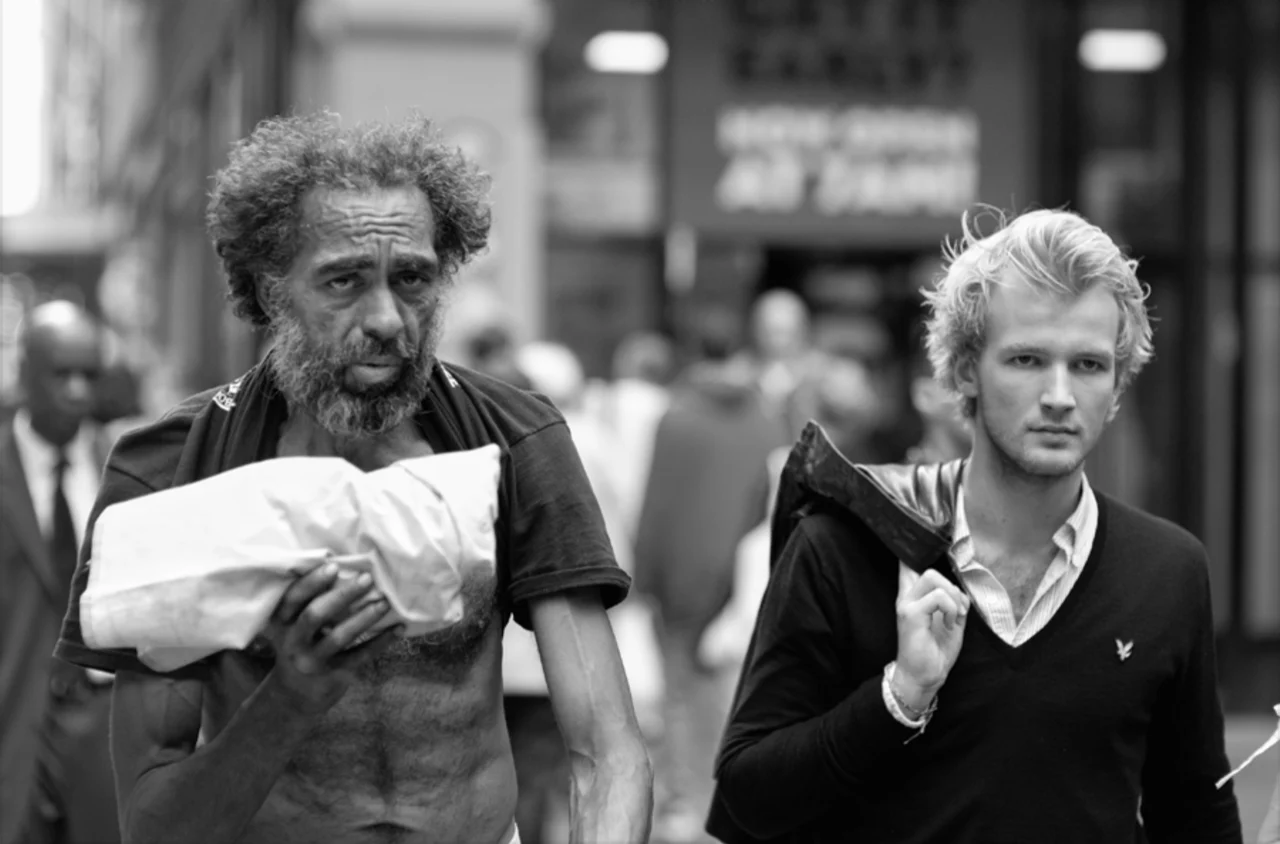
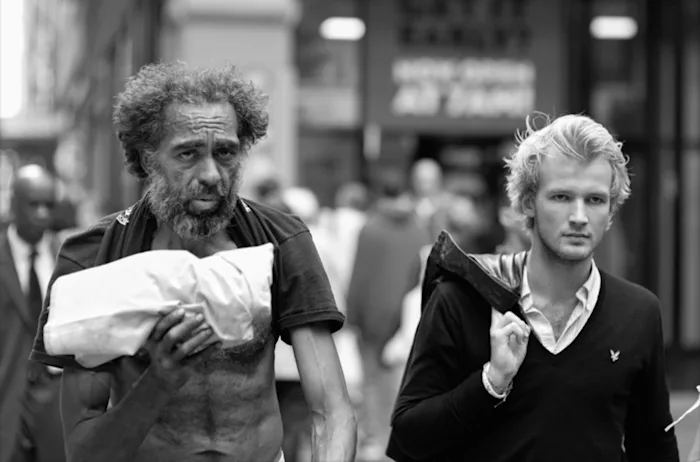
This is all to say that the undercommons has no particular relation to, or relative antagonism with, a sector created by the capitalist division of labor called higher education. As Marx said, the criminal creates the criminal justice system. We find “informal and situated knowledge” amongst prisoners, prisoner’s families, courtroom clerks and reporters, etcetera. This undercommon work is what the legal sector exploits. Lawyers and judges are primarily supervisory. And so it is with the healing work of patients and families that makes the health sector. Doctors and nurses are primarily supervisory. Beyond all the ideology of the special mission of the university sector it is worth remembering two things. First, students make the higher education system. Professors are primarily supervisory. Second, students working to become teachers, in any area, are – all of them – being groomed for management. Graduate students feel this contradiction and it hurts because they are moving from the shop floor to management. But the fact is that if you want to teach for money in our system, you’re supposed to supervise. None of this would need saying if we were talking about the automobile sector. Those who work in an auto plant know their roles. If they solder they are workers. If they evaluate the quality and speed of soldering, they are management. Of course, managers get evaluated, too, and sometimes something like an appetite for being (de)graded, which accompanies the appetite for (de)grading, appears to appear. But that’s small scale compared to the mechanics of “teacher-student relations,” which study refuses.
Realizing that you have to supervise to teach for money, even lousy money, in our system can then lead to two forms of collective organization. We can take from the job our money and do something else together, or we can work to overturn a system that chains study to supervision because only this overturning is going to break that line. And at a certain point since any exodus both goes nowhere and undermines what it leaves, these two forms of organizing come together. Any other approach is just waiting around to be offered “supervisor of the month” or a “Distinguished Teaching Award.”
Of course, part of the ideology of the university’s exceptionalism is that under this capitalist division of labor the university is permitted to gather knowledge, that is, supervise not just its own sector and its students but also to supervise other sectors. It creates agronomy departments to share in the supervision of the agricultural sector, or an art department to share in the supervision of the art market, through research. But this should not fool us. It is the same for the banking sector, whose oversight and supervision of other sectors produces papers and reports.
4.
As we often suggest in conversations around the practice of study, once we try to study, the system will come for us, no matter how minor our study appears to us. And so, there is really no possibility of disengaging given the constant potential we carry to provoke engagement. Life demands we bring forth this potential again and again despite the consequences.
But engagement itself also posits and re-posits us in a way that risks trapping us in an idea of ourselves as strategic agents who have antagonistic relations with systems of power. The general antagonism admits neither strategy nor strategic relations nor strategic agents. In fact, it points to the fundamental antagonism of all as difference: clashing, contrasting, emerging, and fading without agents or strategies. Agents with strategies, that is, individuals, mistake all this difference for something out of which they can fashion choices, or decisions, or relations, which is also to say out of which they could fashion themselves. But the general antagonism won’t let you go, no matter how hard it propels you, ‘cause it’s us. Your efforts at recognizing yourself and being recognized will riot on you.


This is why we find complicity useful. When you think about how people worry about complicity it is precisely a fear of the general antagonism. If someone is worried, as is typical, about how his art practice or curatorial practice will be compromised by complicity with the museum, or worried about how her research and teaching will be compromised by complicity with the university, at the base of that worry is the fear that they cannot sort themself out in the midst of this complicity. The person cannot say this is ‘me,’ my strategy, and my relation to the institution. Complicity indicates a kind of falling into something and not being able to disentangle what you see as yourself from the institution and its (anti-)sociality. The person fears not being able to say this is the boundary, fears that the border is crossing them. But no amount of strategy, decisions, or relations can disentangle us. The institution seems so much more successful than us at turning the general antagonism into the ground for individuation. But why do we feel this way when the real feeling we get from the institution is precisely the opposite, entanglement?
Now, maybe the way to deal with that resistance to the general antagonism provoked by the fear of complicity with an institution is to invoke the other use of complicity. To be complicit with others, to be an accomplice, to live in ways that always provoke conspiracy, a conspiracy without a plot where the conspiracy is the plot – this use of complicity can help us. This second use of complicity emphasizes our incompleteness – when you see us you see something missing, our accomplices, or something more, our conspiracy. It’s all good, it’s just not all there. We don’t make sense on our own. There must be more of us, more to us. On our own we don’t add up. And that is what we are, and that is what we are in the institution, and how we are in the institution, complicit with others who are not there in the institution, conspiring with them while inside, tangled up in the institution with the thought or the sound or the feel of the outside, which is in us, which we share in this sharing with, this ongoing folding with, this unaccomplishable com + pli. That kind of complicity can be deepened even as we deepen our place in, as we dig down through, the institution. We can provoke here not a strategy of within and against, but a way of living that is within and against strategy, not as a position, relation, or politics, but as a contradiction, an embrace of the general antagonism that institutions feed off but deny in the name of strategy, vision, and purpose. Our complicity refuses the purposive as its own reward and the more it grows the more the underlying entanglement of the institution overwhelms its strategy. We will have been violent to, or malignant in, the institution, cutting it together apart into nothingness, as Karen Barad might say.
Another word for this is communism. We can’t be spoken of in the same breath as the League of Revolutionary Black Workers, but we can try to follow their example insofar as it doesn’t seem to be the case that they indulged in a lot of hand-wringing and navel-gazing regarding their complicity with the auto industry. They didn’t feel guilty or conflicted about working for General Motors. They didn’t identify with GM or derive their identity from their relative antagonism with GM. Sometimes we are asked by graduate students if we feel hypocritical about being “career academics.” Did General Baker – after whom, we might say, and we’d only be half-joking, the general antagonism is named – feel hypocritical about being a career autoworker? We’d rather answer such questions by saying why we can’t answer them. We study with Baker and Robinson, even now, and they share how they refuse the metaphysical foundations of politics and political theory. We study with Audre Lorde and Foucault, too, but centering her pre-emption of his recognition of “the fascism in us all” doesn’t rid us of the task of reading – by way of them, in their wake, under their influence and protection – against the grain of their metaphysico-political commitments to individuation, which each of them articulate by way of a certain “care of the self.” What if what’s always being taken care of is not this or that self but the very idea of the self that lies at the core of anti-socially reproductive carelessness? We said non-fascist living is a refusal of communism. It is. It is a refusal of complicity. It is an impossible ethics of individuation-in-relation. Individuals must, but at the same time cannot, be in relation. Increasingly, we live and suffer contradiction as the genocide, and geocide, we study to survive. Nella complicità!
5.
Let’s imagine that Foucault shared a problem with us, and that problem was the metaphysical foundations of politics. That metaphysics says that there are individuals who bear rights and morals that must be protected by the state. Politics is the way those individuals then relate to each other, to their own selves, and to the government that emerges either from within this politics but also, as it were, outside of this politics by way of and also expressive of an authority whose foundations are not only, as Derrida says, mystical but also in and of a hard, brutal, real(ist) presence. Foucault, of course, did not believe in this metaphysics. He thought the individual, who will have been protected by the state but was in fact created by the state, was a prison house – but one created so subtly and seductively that we would open the door to it ourselves and close the door to it on ourselves. His tactic was to refuse this individual in favor of a self who would be tended to, directly, by the animate body concerned. Now, we want to share Foucault’s refusal of the metaphysical foundations of politics we find ourselves trapped within. We share that refusal, in fact, whether we want to or not. That is the first sense of our complicity, that sharing, which is a sharing of and in desire. It’s just that it is a sharing that is not, either in the first instance or the last, because there is neither a first instance nor a last, embodied. Sharing is, as Spillers teaches us, from within the field of black feminist theory and practice that Lorde also cultivates, a fleshly animation that moves disruptively in, while also surrounding, metaphysico-political individuation or, if you will, the body politic. We share, in complicity, that movement within that also surrounds. It is not that what we want is bound up with politics. It is that we find ourselves reduced or stayed by politics having to fight our way “back” to what is uncontained by politics. That elsewhere, where map and territory or blurred, where return fades beyond belonging, so that back becomes before, in terror and beauty, as Dionne Brand in submerged, cartographic walking, can’t be found by taking the path Foucault cuts, because that path, which is the animate body’s path, has always been denied to the flesh, and therefore most especially to black people who are for historical reasons violently entrusted with the keeping, in sharing, of what becomes what it always was, blackness, that anoriginal communism, which Morrison speaks of as the love of the flesh before she speaks of the care of the sources of the self and its regard.2 Refusing the ‘selves' and ‘bodies' refused to them, black people live in the duress of (the state’s, or racial capital’s political body’s) total access to – Spillers calls it a terrible availability of – what they protect but do not have, which is and must remain as the absolute vulnerability to valuation, grasp and possession of the absolutely invaluable, ungraspable, and dispossessively dispossessed. Therefore, if you follow in the swerving path of this access which must be kept open at the price of being left open, you have to, and you do, find another way.
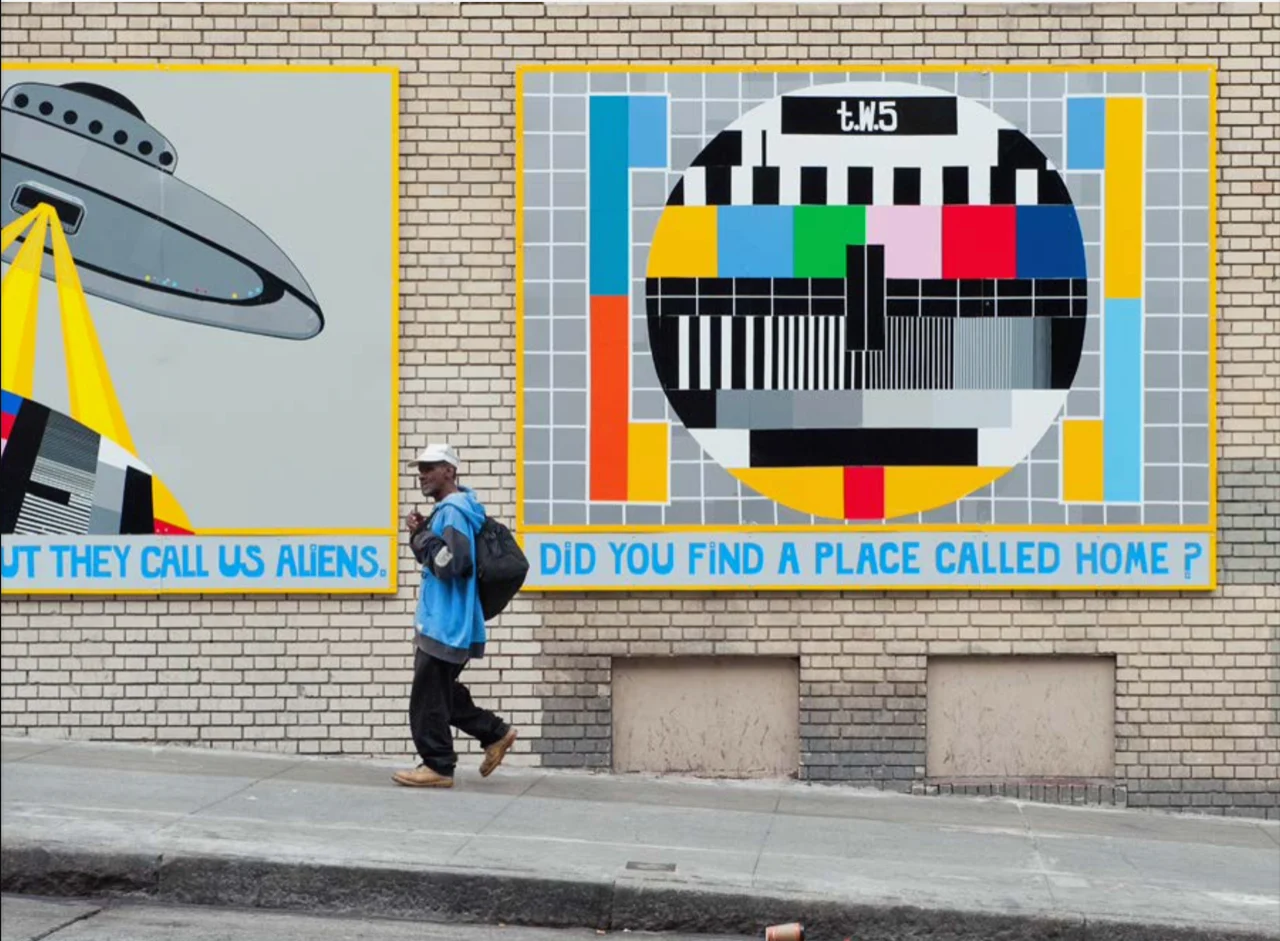
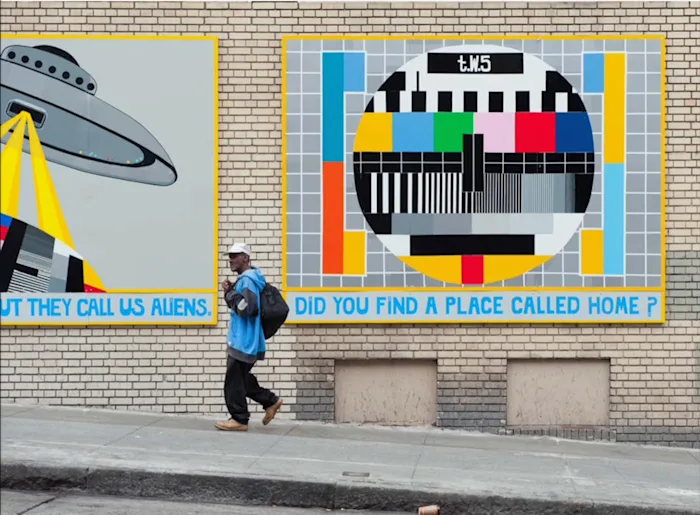
The refusal of metaphysics we share with Foucault, that Foucault’s brilliance lights in us, must nonetheless depart from his path, as it continually departs from its own in fugitive flight from freedom, slavery’s preparer, accompanist, and haunted survivor. Therefore, we have to question both the metaphysics of the individual, and of relations, and, indeed, of the (inter)personal. Marx wants us to organize our powers as social powers, and he warns us that so long as we divided our social powers from ourselves in the form of political powers, we would not emancipate ourselves. But the problem extends further when we come to understand that the only conception of emancipation we can have is a political one. And so, we have to work on and for a communism that does not resolve itself into freedom or emancipation after having done all that work against the political. And the way to do that is to shift Marx’s formulation under the guidance of those whose emancipation is behind them, and in hot pursuit, as Hartman shows and proves. Otherwise we would be subjugating ourselves to each other through individuals-in-relations of emancipation, the very free subjects who can do nothing but privatize, externalize, and brutalize as, indeed, free subjects always have. Instead, we can imagine an entanglement of life, and constant bloom, amid an earthy decay at which advanced, eurocriticality can only sneer in sterile and abstract disgust. We can imagine it because it happens everywhere social life surrounds the political life that seeks to separate us from our powers by offering us power, or worse, the right to demand a share of what we are forced to make and cut to meet the conditions of the demand. We can imagine it, the anoriginal communism, because it is lived wherever blackness militates against itself – wherever, as Sly Stone says, there’s a riot going on. And, unfortunately, we can imagine it because the regulatory force of politics, individuals, and relations between supposedly discrete and sovereign humans, is, as Robert Johnson says, a hellhound on our trail.
6.
The act of emplotting yourself in time and space is – perhaps paradoxically at first – also the act of being all but nowhere. That spot you mapped is dimensionless. It cannot be found precisely because your act claims that the point you will have occupied is universal, the abstract point every individual can and must make and from which humanity becomes possible, with and through and in which the human finds himself. And because it is nowhere, its relationship to place is, in fact, one of impunity. It is this impunity that founds modern morality and the idea of responsibility or sustainability which this act of impunity then hires as its security detail. Can there be a better description of the human: the being who lives with impunity on the earth and is sorry about it? So, the question of what has happened can be taken with the question of what will happen in a way for which normative ethical questioning makes room. Against this abstract preparation for the victory of reason over its rivals, this tilting of the board toward one point, there is a way to live history and place that is not part of the humanization, that is to say racialization, of our earth and its reduction to world, its degradation of its means to mere logistical ends and its forfeit of sharing to mere ownership, all of which require and are instantiated by emplotment and its rule(r). Amiri Baraka calls this entanglement of history and place “place/meant” and we hear him, now, through M. NourbeSe Philip’s amplification of “dis place,” as if he meant for that errant and supplemental “a” to signify a movement of and in place, a radical and irreducible movement that constitutes our undercommon indigeneity, our shared, native, ante-natal turning out of (re)turn.3 If emplotment is how we give up the undercommons for a common grave, then dis place/meant is how we find and mark the surrealistic spot.
Black imagination in the face of fascism is certainly an example of this, living history and place without succumbing fully to this emplotment; but this is not to say living in some form of life that’s more ‘real.’ That’s not the point. It’s not even about the point and it’s not about pointing. Some of the earliest speculative fiction we have is black speculative fiction written in response to American fascism and it’s part of what is now the longest running and perhaps most successful, which is to say unsuccumbed to “success,” of the earth’s anti-colonial movements – the struggle by black people all over the world against the fascist colonial order called the United States of America. From Martin Delany to Octavia Butler, from Mary Prince to Frankétienne, emplotment is continuously disrupted in movement’s names. And we could also point to the continuous non-coercive rearrangements of desire, to take a turn again with Spivak, that constitute black music, which is neither metaphor nor allegory, which is nothing but generally ante-generic black social life as it brings around its history and mashes up its place again and again.
This is what tells us that the answer to how to act is how we act. It’s C. L. R.’s and Etta’s future in the present, which is this train Sister Rosetta Tharpe is always talking about, that clean one Woody Guthrie sleeps on, as a pillow, with all the unscheduled calypsonians in shared logisticality; it’s Gladys Knight’s midnight train, the O’Jay’s friendship train, Bob Marley and the Wailer’s Zion train, Trane’s sun ship, Sun Ra’s funkadelic spaceship, the general blinds we ride. Time and space emplotment is fundamental to every capitalist production process, to all the circuits and metrics of production, beginning with the production of the human worker. Bending time and space to our offbeat beat and displaced place is bound to fuck that up, ‘cause it already will. Now, if you need some, come on, get some, before it’s too late. As long as you don’t steal, we share.
Excerpted from Stefano Harney and Fred Moten, All Incomplete
Images: Zun Lee
Notes
1. This chapter began as a call and response with our friends at BAK Wietske Mass and Maria Hlavajova. See Gerald Raunig, Dividuum: Machinic Capitalism and Molecular Revolution, trans. Aileen Derieg (New York: Semiotext[e], 2016) for more on the non-individually derived dividual.↰
2. See Dionne Brand, A Map to the Door of No Return: Notes to Belonging (Toronto: Vintage Canada, 2002) and Toni Morrison, Beloved (New York: Vintage, 1987, 2004).↰
3. Amiri Baraka (LeRoi Jones), “Return of the Native” in William J. Harris, ed. The LeRoi Jones/Amiri Baraka Reader, 2nd Edition (New York: Basic Books, 1999) 217 and M. NourbeSe Philip, “Dis Place – The Space Between” in A Genealogy of Resistance and Other Essays (Toronto: The Mercury Press, 1997) 74-112. ↰